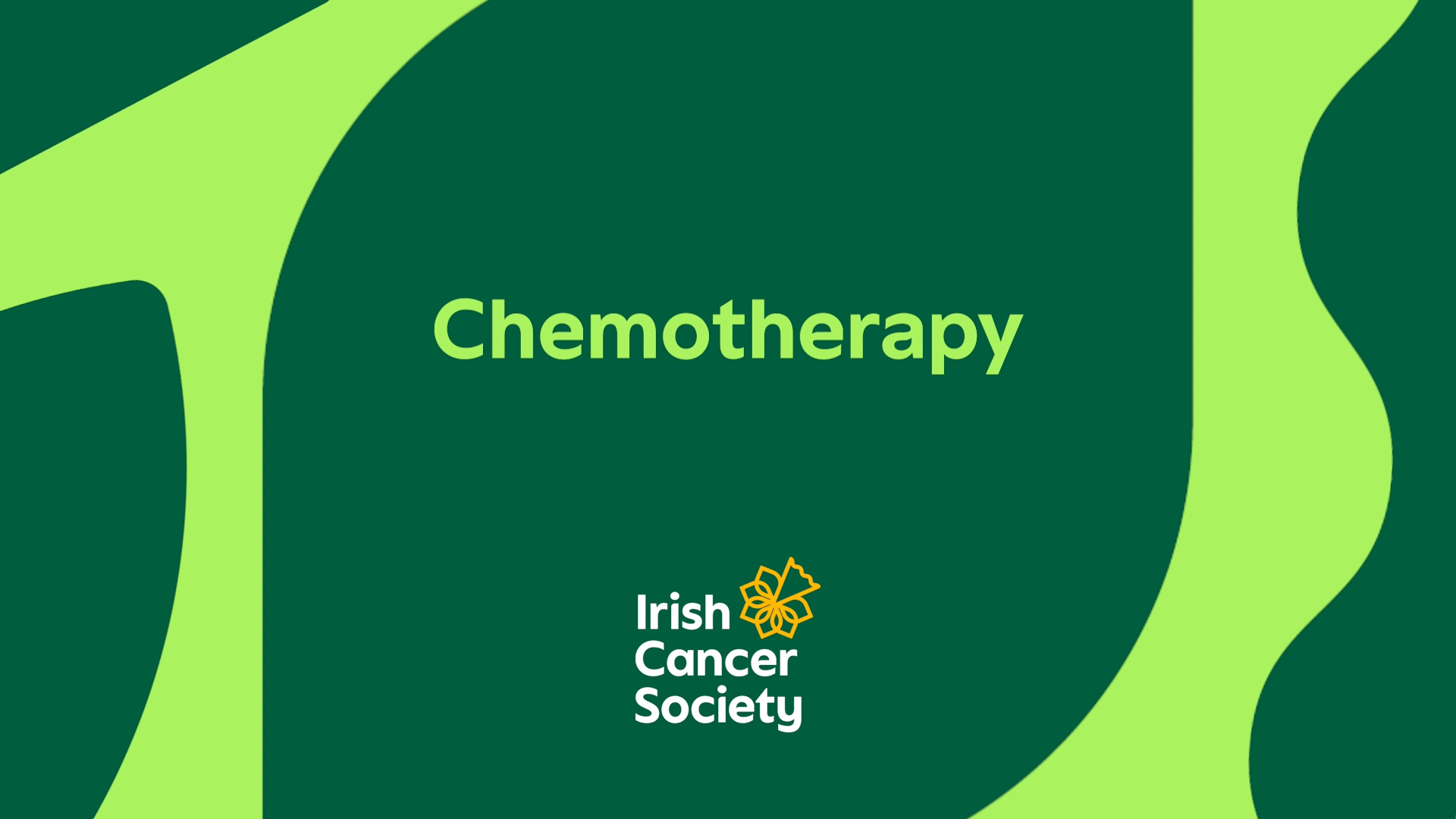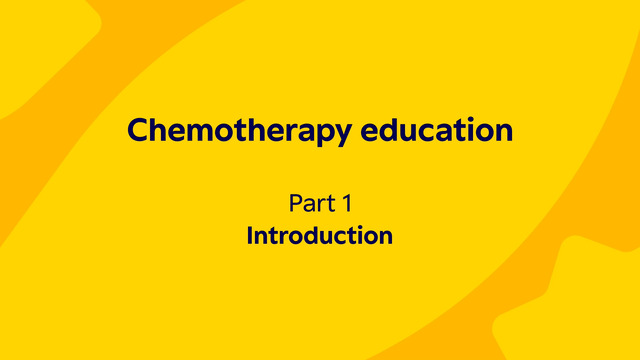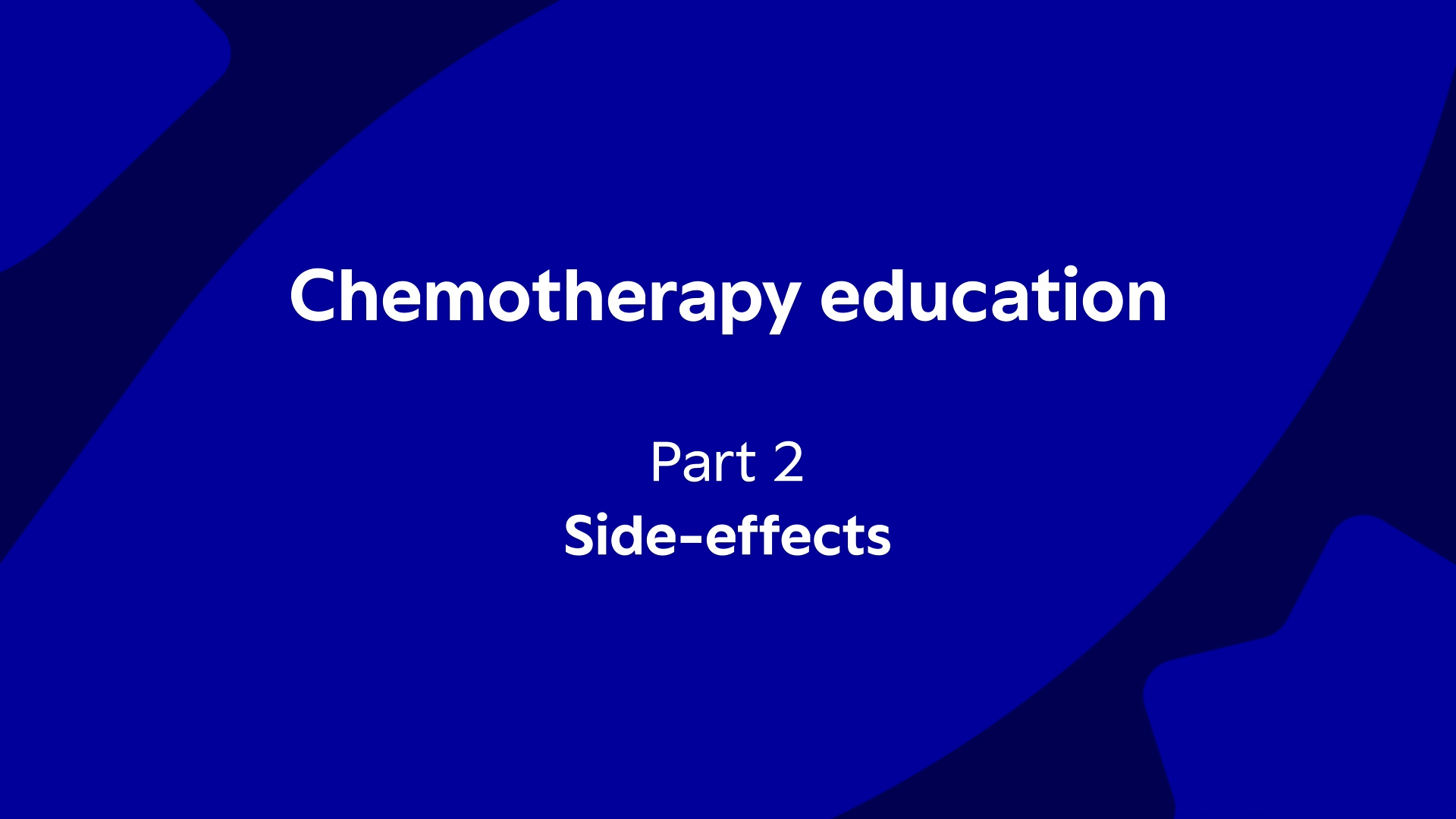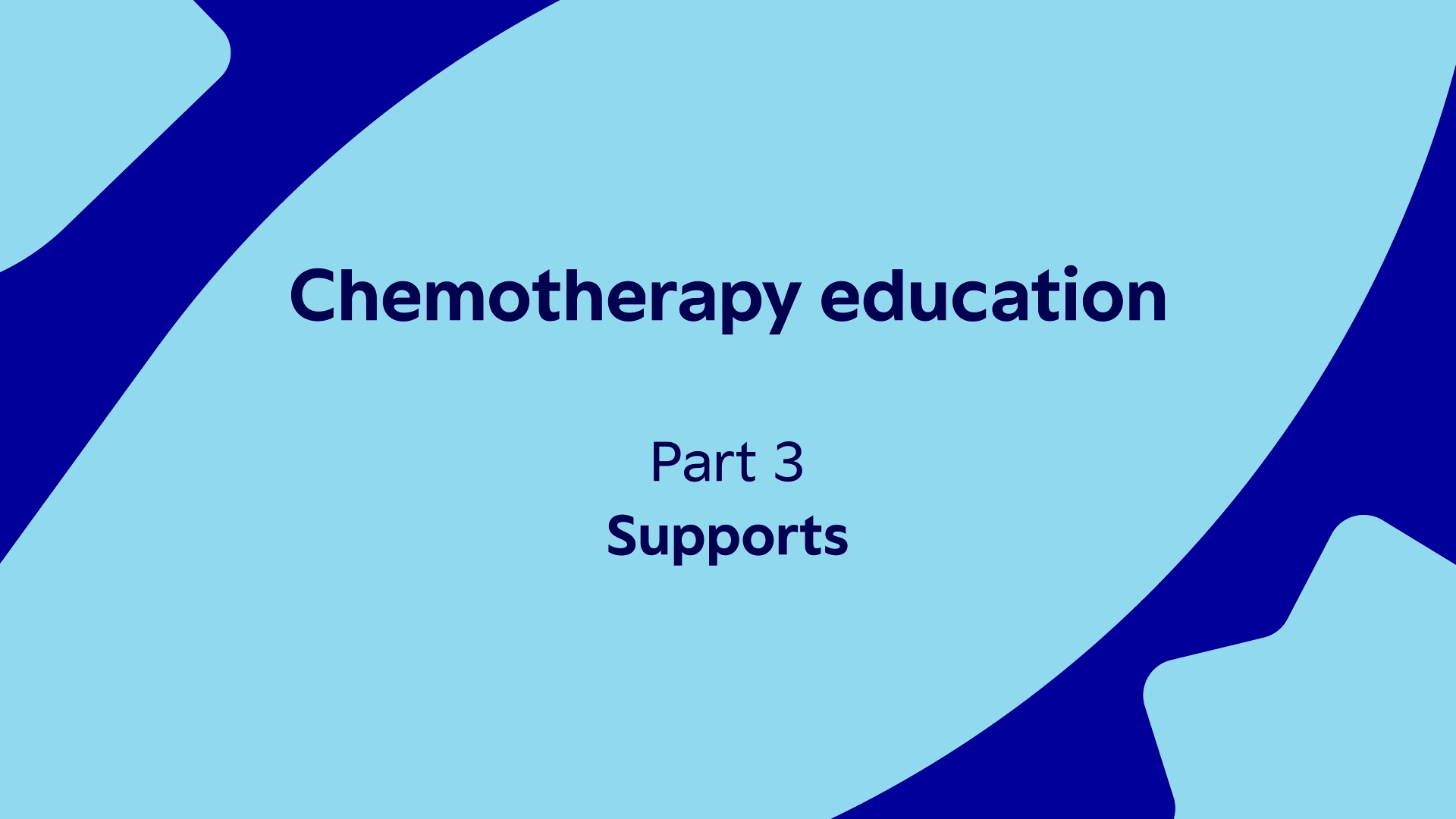Chemotherapy education Part 1: Introduction
This video explains how chemotherapy works and what to expect in your treatment plan.
0:09
I would hope that this video will help you to get through your cancer journey, to allow you that when you meet with your doctor and your specialist nurse, what kind of questions you might like to ask that will help you in your treatment and to enable you to partake in your journey.
0:24
When the nurse and doctor meet you, they'll give you some written information and they'll go through some of the side-effects with you. You'll meet with me or someone like me before you start your treatment, and the side-effects of the treatment will be discussed prior to you commencing your treatment.
0:41
Chemotherapy is a treatment using drugs that can help cure cancer, prevent it from coming back, reduce the size of cancer before surgery or radiotherapy, and can control cancer and ease cancer symptoms.
0:55
There are many different types of chemotherapy drugs. Your doctor will tell you why they think chemotherapy is suitable for you. Chemotherapy drugs can be given alone or in combination with other cancer drugs such as targeted therapies or immunotherapies.
1:08
Immunotherapy drugs change parts of your immune system to work better to fight cancer cells. Targeted therapies can target genes or proteins that help some cancers to grow or survive. We have information videos about immunotherapies and targeted therapies cancer treatments on our website.
1:27
Just like the cells in our body, cancer cells divide and grow. Chemotherapy travels in the bloodstream and reaches cancer cells around the body. Chemotherapy damages the cancer cells, killing them or preventing them from growing further.
1:40
Chemotherapy also affects normal cells that grow and divide quickly, which leads to side-effects. Normal cells usually repair themselves, but cancer cells can't and eventually die. Damage to normal cells usually is temporary and disappears over time after treatment has finished.
1:57
Treatment is carefully planned to maximise the effectiveness of chemotherapy and minimise side-effects.
2:07
Your doctor will decide how often you have chemotherapy and for how long. The treatment is completely individual. So, someone with the same cancer as you could have a completely different treatment plan. This is nothing to worry about.
2:18
Most people have their treatment in a day hospital or clinic. Some people have their treatment at home. You may have to visit the hospital regularly for at least 3 to 6 months. Sometimes you will receive your chemotherapy on these hospital or clinic days. Other times you may just need blood tests or to visit the doctor or specialist nurse.
2:36
Each chemotherapy session is called a cycle. Each cycle is followed by a rest period. The rest period helps your body to recover from the effects of the chemotherapy. Sometimes your treatment may be delayed if your body needs more time to recover. It is important that your body recovers from your treatment before starting your next cycle.
2:58
Chemotherapy can be given in lots of different ways, through the veins or intravenously is the most common. Patients will have a line known as a cannula inserted into a vein in their arm. Chemotherapy drugs are usually given to you by nurses.
3:11
Your doctor or nurse will tell you if you need a central line inserted. These central lines, also known as a PICC line or a port, are inserted into a larger vein in the arm or chest. Central lines can be left in place for weeks or months at a time. For people with central lines, chemotherapy is given directly through the central line.
3:30
Some chemotherapy may be given as an injection. Some chemotherapy drugs can be taken by mouth in a tablet or capsule. These are called oral anti-cancer medicines or OAMs.
3:44
Your doctor will carefully tailor your treatment based on the type of cancer you have, where it is in your body, if it has spread to other areas of your body or not, your age and general health.
3:55
Your doctors will run some tests. These can help them to decide what chemotherapy drugs are best suited to you and your cancer. The doctors will prescribe a chemotherapy dose especially for you and observe you carefully for side-effects.
4:06
Sometimes, as you progress through your cancer treatment, your doctor may have to make changes or alter your treatment. This is nothing to worry about and is common practice. The reason why the change is made will be explained to you.
4:18
I would advise you, if you've been given some information, read through it before you meet with your specialist nurse. As you're going through it, write down any questions that pop into your head. Because when you meet with them, it can be very hard to remember.
4:28
You will be given an appointment for either the day unit or the inpatient ward, depending on the time needed to give your treatment to you.
4:37
On the day that you're receiving your treatment you'll meet with the nurse who will be administering the treatment on the day. She will take some blood from you, which will go to the lab. Once the results are available, one of the doctors will review you and make sure that you're fit enough to go ahead with your treatment. Once that's done, then the treatment can be started.
4:53
On the day of your treatment you will have a chance to ask any questions and the nurses will be able to help and advise you. You will also be given a hospital alert card with important phone numbers you may need to contact your hospital with any questions you have about your treatment or any side-effects you may be experiencing.
5:11
Keep these numbers safe with you at all times.
5:18
Taking care of your physical and mental health, before and during your cancer treatment, also called prehabilitation, can help you cope better during your treatment, can make a difference to your wellbeing, as well as help you to recover better and support you to live life as fully as you can.
5:34
Some things that can be helpful are eating well, staying active and taking care of your emotional health.
5:39
If you would like further information on anything from this video, you can speak to our cancer nurses by: Calling the Support Line on 1800 200 700. You can also call into one of our Daffodil Centres or you can email the nurses at supportline@irishcancer.ie




